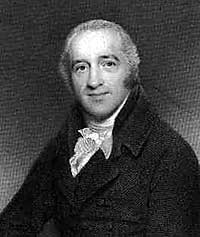
Many of you will be familiar with the Simeon Trust, which offers workshops in exposition. Here's a bit from Charles Simeon himself on sermon prep, with a few words from Packer as our guide.
Sermon texts should be chosen with care, for the sermon should come out of the text whole and rounded, "like the kernel out of a hazel-nut; and not piecemeal... like the kernel out of a walnut." Therefore, do not take a text that is too long to manage properly, and, on the other hand, "never choose such texts as have not a complete sense: for only impertinent and foolish people will attempt to preach from one or two words, which signify nothing." the text chosen should so shape the sermon "that no other text in the Bible will suit the discourse," and nothing foreign to the text must be allowed to intrude. For the prime secret of freedom and authority in preaching, as Simeon was well aware, is the knowledge that what you are saying is exactly what your text says, so that your words have a proper claim to be received as the Word of God. In a journal article in 1821, Simeon boiled down sermon preparation to the following: "Reduce your text to a simple proposition, and lay that down as the warp; and then make use of the text itself as the wood; illustrating the main idea by the various terms in which it is contained. Screw the word into the minds of your hearers. A screw is the strongest of all mechanical powers... when it has been turned a few times scarcely any power can pull it out."
From Preach the Word, p. 148.



2 comments:
Is there a difference between "expository" and "expositional" preaching?
Hi Elnwood,
I tend to use the terms interchangeable. But some godly men, like Phillip Jensen, think the terms have become too broad in what they include. So, Jensen prefers "explicatory". I'm happy with all of those terms as long as the idea being expressed is basically "opening the text to expose the meaning that's in the text."
Hope that helps,
T-
Post a Comment